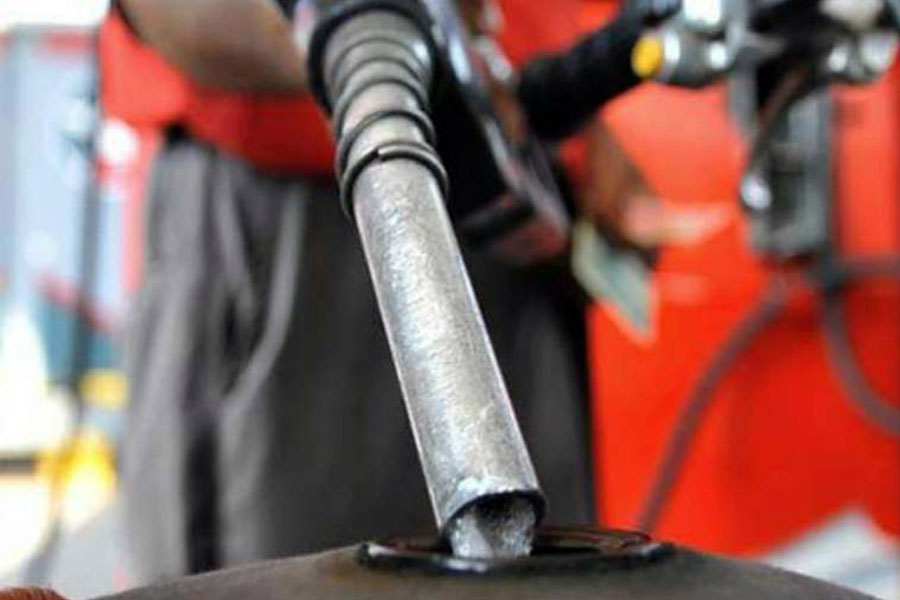While the ministries of energy and maritime affairs wrangle over some operational issues, Pakistan’s petrol stocks have slid to a critical position, posing a challenge to smooth supplies, according to a report published in Dawn. As per information, the overall petrol stocks were lower than 8 days of country’s average consumption coverage.
Related: Petrol Becomes Magically Available After Price Hike
This comes as a grim reminder of the June 2020 situation when the supplies had run dry, followed by a series of inquiries and formation of commissions to investigate reasons. The then special assistant to prime minister and other senior officials of the petroleum division were removed from their positions and many companies were penalized.
A senior official of the petroleum division claimed it had made every possible logistical effort to move product from Sindh, particularly Karachi, to other provinces to maintain four to five days of stocks as the berthing of a cargo was superseded by a crude cargo that could have been put on hold for at least five days. He said more than 50,000-tonne petrol was moved from Sindh to rest of the country between July 30 and August 2 to avoid dry outs where stocks had plummeted to two to three days. The stock position in Sindh thus reduced from 30-day cover to 22-day cover on Monday.
Because of thin petrol stock position in Punjab, Balochistan, Khyber Pakhtunkhwa and Gilgit-Baltistan and Azad Jammu and Kashmir, the petroleum division of energy ministry made an emergency request to the Ministry of Maritime Affairs on July 30 to prioritize berthing of petrol cargos. “Keeping in view the critical demand/supply position of petroleum products, it is requested that sequence for berthing” of petrol be prioritized at Karachi Port Trust (KPT) and allocated Fauji oil terminal company to diesel and furnace oil cargos between July 31 and August 3.
Related: Government Blame Mafias for Creating another Crisis
The petroleum division also allocated oil piers at KPT to various arriving cargos. During this period, five ships carrying a total of 210,000 tonnes of petrol were to be berthed at the two terminals – two belonging to Pakistan State Oil and remaining to Total Parco, Go and Shell Pakistan. The petroleum division also allocated six diesel and furnace oil cargos at Fauji oil terminal company for the same period.
On July 31, however, the Ministry of Maritime Affairs berthed a crude cargo at the KPT. Sources in the ministry said as per government decisions, any ship brought by the Pakistan National Shipping Corporation (PNSC) had priority over all other ships. The petroleum division officials conceded this but claimed the priority was restricted to PNSC’s own ships and not to those hired by it.
Secondly, they said, it was a special case to prioritize petrol cargos given lower stocks upcountry while the relevant refineries had just decanted a crude ship that would have been enough for four to five days. The Ministry of Maritime Affairs, however, asked the managements of KPT and Fauji oil terminal company to ensure sequence of priority provided by it that also included a crude cargo that it said had been “discussed with the petroleum division keeping in view the critical stocks in NRL, which could lead to closure”.
Related: OCAC Blames Bureaucracy for Fuel Shortage
Sources in the Ministry of Maritime Affairs said it did not even change the petroleum division’s priority order but adjusted crude flow to NRL. It directed port authorities that sequence would not be breached as per priority given by it and if any vessel was unavailable to be berthed, next vessel from its approved sequence would be given opportunity for berthing and no berth would be left vacant even for an hour.
On August 2, the petroleum division protested that despite its request, berthing at specified jetties for petrol, diesel and furnace oil vessels were not adhered to. “However, instead of berthing of Total-Parco’s vessel (MT George Jacob), Parco’s Crude oil vessel MT Argues was berthed at OP-2 (KPT)”.
However, the Ministry of Maritime Affairs believed the allocation of jetties by the petroleum division was intrusion in its jurisdiction, the sources said. Therefore, the petroleum division agreed not to allocate specific piers but insisted that “in view of limited stocks of MoGas the berthing sequence for KPT may kindly be issued…As desired specific request for Ops has not been mentioned”.
Related: Government Accuses OMCs for Artificial Shortage & Illegitimate Profiteering
By the time, however, the overall petrol stocks fell below 220,000 tonnes, lower than eight-day cover at a national level. Diesel stocks also dropped to about 11- or 12-day cover. The sources said some of the jetties usable for oil berthing had been out of order.
Higher consumption, high tide in the seas and poor planning and stock management were quoted as key reasons behind the shortage. Some disruptions were also caused by delay in arrival of crude vessel of Byco Petroleum due to high tide and its product storage had been exhausted. A vessel belonging to Shell had also faced delays due to high tide. Some supply problems also emerged because Hascol was currently facing financial difficulties.
Source: Dawn

A computer animation professional with over 23 years of industry experience having served in leading organizations, TV channels & production facilities in Pakistan. An avid car enthusiast and petrolhead with an affection to deliver quality content to help shape opinions. Formerly written for PakWheels as well as major publications including Dawn. Founder of CarSpiritPK.com




